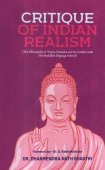Satta, Sattā, Saṭṭa, Shatta: 24 definitions
Introduction:
Satta means something in Buddhism, Pali, Hinduism, Sanskrit, Marathi, Jainism, Prakrit, Hindi. If you want to know the exact meaning, history, etymology or English translation of this term then check out the descriptions on this page. Add your comment or reference to a book if you want to contribute to this summary article.
Images (photo gallery)
In Hinduism
Vyakarana (Sanskrit grammar)
Source: Wikisource: A dictionary of Sanskrit grammarSattā (सत्ता).—Existence, supreme or universal existence; the Jati par excellence which is advocated to be the final sense of all words and expressions in the language by Bhartrhari and other grammarians after him who discussed the interpretation of words. The grammarians believe that the ultimate sense of a word is सत्ता (sattā) which appears manifold and limited in our everyday experience due to different limitations such as desa, kala and others. Seen from the static viewpoint, सत्ता (sattā) appears as द्रब्य (drabya) while, from the dynamic viewpoint it appears as a क्रिया (kriyā). This सत्ता (sattā) is the soul of everything and it is the same as शव्दतत्त्व (śavdatattva) or ब्रह्मन् (brahman) or अस्त्यर्थ (astyartha); cf. Vakyapadiya II. 12. The static existence, further, is called व्यक्ति (vyakti) or individual with reference to the object, and जाति (jāti) with reference to the common form possessed by individuals.

Vyakarana (व्याकरण, vyākaraṇa) refers to Sanskrit grammar and represents one of the six additional sciences (vedanga) to be studied along with the Vedas. Vyakarana concerns itself with the rules of Sanskrit grammar and linguistic analysis in order to establish the correct context of words and sentences.
Chandas (prosody, study of Sanskrit metres)
Source: Shodhganga: a concise history of Sanskrit Chanda literatureSattā (सत्ता) refers to one of the seventy-two sama-varṇavṛtta (regular syllabo-quantitative verse) mentioned in the 334th chapter of the Agnipurāṇa. The Agnipurāṇa deals with various subjects viz. literature, poetics, grammar, architecture in its 383 chapters and deals with the entire science of prosody (e.g., the sattā metre) in 8 chapters (328-335) in 101 verses in total.

Chandas (छन्दस्) refers to Sanskrit prosody and represents one of the six Vedangas (auxiliary disciplines belonging to the study of the Vedas). The science of prosody (chandas-shastra) focusses on the study of the poetic meters such as the commonly known twenty-six metres mentioned by Pingalas.
Ayurveda (science of life)
Dietetics and Culinary Art (such as household cooking)
Source: Shodhganga: Dietetics and culinary art in ancient and medieval IndiaSaṭṭa (सट्ट) is mentioned in a list of potential causes for indigestion in the 17th century Bhojanakutūhala (dravyaguṇāguṇa-kathana), and is commonly found in literature dealing with the topics of dietetics and culinary art, also known as Pākaśāstra or Pākakalā.—A complete section in Bhojanakutūhala is devoted for the description of agents that cause indigestion [viz., saṭṭa]. These agents consumed on a large scale can cause indigestion for certain people. The remedies [viz., kaṇāmūla] for these types of indigestions are also explained therewith.

Āyurveda (आयुर्वेद, ayurveda) is a branch of Indian science dealing with medicine, herbalism, taxology, anatomy, surgery, alchemy and related topics. Traditional practice of Āyurveda in ancient India dates back to at least the first millenium BC. Literature is commonly written in Sanskrit using various poetic metres.
Shaktism (Shakta philosophy)
Source: Google Books: ManthanabhairavatantramSattā (सत्ता) refers to the “supreme being”, according to the Kṣemarāja’s commentary on the Svacchandabhairavatantra.—Accordingly, “The supreme state is the Supreme Being (sattā) of Paramaśiva. It should be known to be extremely subtle and the universal cause, which, because it is the cessation (prakṣaya) of all being, is Non-being”.

Shakta (शाक्त, śākta) or Shaktism (śāktism) represents a tradition of Hinduism where the Goddess (Devi) is revered and worshipped. Shakta literature includes a range of scriptures, including various Agamas and Tantras, although its roots may be traced back to the Vedas.
In Buddhism
Theravada (major branch of Buddhism)
Source: Dhamma Dana: Pali English GlossaryM The whole of beings.
Source: Buddhist Information: A Survey of Paramattha DhammasSatta is being.
Source: Pali Kanon: Manual of Buddhist Terms and Doctrines'living being'.
This term, just like attā, puggala, jīva, and all the other terms denoting 'ego-entity', is to be considered as a merely conventional term (vohāra-vacana), not possessing any reality-value.
For the impersonality of all existence. s. anattā, paramattha, puggala, jīva, paticcasamuppāda.
Theravāda is a major branch of Buddhism having the the Pali canon (tipitaka) as their canonical literature, which includes the vinaya-pitaka (monastic rules), the sutta-pitaka (Buddhist sermons) and the abhidhamma-pitaka (philosophy and psychology).
Languages of India and abroad
Pali-English dictionary
Source: BuddhaSasana: Concise Pali-English Dictionarysatta : (pp. of sajjati) attached or clinging to. (m.), a creature; living being. (adj.), (the number), seven.
Source: Sutta: The Pali Text Society's Pali-English Dictionary1) Satta, 4 (num.) (cp. Vedic sapta, Gr. e(ptά; Av. hapta; Lat. septem, Goth. sibun=E. seven etc.) number seven. It is a collective and concluding (serial) number; its application has spread from the week of 7 days (or nights), and is based on astronomical conception (Babylon!), this science being regarded as mystic, it invests the number with a peculiar magic nimbus. From time-expressions it was transferred to space, esp. when originally connected with time (like satta-bhūmaka the 7—storied palace; the Vimānas with 700 towers: see vimāna 2 & 6; or the 7 great lakes: see sara3; °yojana 7 miles, cp. the 7 league-boots!). Extremely frequent in folklore and fairy tales (cp. 7 years of famine in Egypt, 7 days’festivals, dragon with 7 heads, 7 ravens, 7 dwarfs, 7 little goats, 7 years enchantment, etc. etc.). ‹-› For time expressions see in cpds. : °āha, °māsa, °ratta, °vassa. Cp. Sn. 446 (vassāni); J. II, 91 (kāyā, thick masses); DA. I, 25 (of the Buddh. Scriptures: sattahi māsehi saṅgītaṃ); DhA. II, 34 (dhanāni), 101 (maṅgalā); the collective expression 7 years, 7 months, 7 days at J. V, 48; the 7X70 ñāṇavatthūni S. II, 59; and the curious enumeration of heptads at D. I, 54.—Cases: Instr. sattahi D. I, 34; Gen. sattannaṃ D. I, 56; Loc. sattasu D. II, 303=M. I, 61.
2) Satta, 3 (pp. of sapati to curse; Sk. śapta) cursed, sworn J. III, 460; V, 445. (Page 673)
3) Satta, 2 (cp, Vedic sattva living being, satvan “strong man, warrior, ” fr. sant) 1. (m.) a living being, creature, a sentient & rational beiṅg, a person D. I, 17, 34, 53, 82; II, 68; A. I, 35 sq. , 55 sq.; S. I, 135; V, 41; Vin. I, 5; Miln. 273; Vism. 310 (definition: “rūp’ādisu khandhesu chandarāgena sattā visattā ti sattā, ” thus=satta1); Nett 161; DA. I, 51, 161; VbhA. 144.—naraka° a being in purgatory (cp. niraya°) Vism. 500.—2. (nt.) soul (=jīvita or viññāṇa) Pv. I, 81 (gata°=vigata-jīvita PvA. 40). ‹-› 3. (nt.) substance Vin. I, 287. nissatta non-substantial, phenomenal DhsA. 38.
4) Satta, 1 (pp. of sañj: sajjati) hanging, clinging or attached to Vin. I, 185; D. II, 246; Nd1 23, 24; Dh. 342; J. I, 376. Cp. āsatta1 & byāsatta. (Page 673)

Pali is the language of the Tipiṭaka, which is the sacred canon of Theravāda Buddhism and contains much of the Buddha’s speech. Closeley related to Sanskrit, both languages are used interchangeably between religions.
Marathi-English dictionary
Source: DDSA: The Molesworth Marathi and English Dictionarysaṭṭā (सट्टा).—m ( H) Mercantile traffic or transaction; exchanging of monies &c.
--- OR ---
sattā (सत्ता).—f (S) Being, existence, real being. 2 Authority, mastership, right over; right of rule, sway, disposal, application, or use. 3 Power, might, capability. See īśvarasattā, kāḷasattā, prabhusattā &c. 4 sattā is often used for Power, the domination of might, or actual mastership in contradistinction from Reasonable authority or right; as Pr. kāḍīcī sattā lākhācī mattā barōbara nāhīṃ; also Pr. sattēpuḍhaṃ śāhaṇapaṇa cālata nāhīṃ Capacity, cleverness, sense &c. prevail nothing against the absoluteness of Power. sattēcā Belonging to; that is under the right or propriety of or at the disposal of. Ex. hēṃ ghara mājhē sattēcēṃ āhē. 2 That has a right, claim, or title to; rightful, lawful. This second sense is not so clear or free. In the sentences constructed with the word in this sense there seems usually to be an implication that the rightful person mentioned is rightful only by his own assumption or arrogation, and that his claim or pretence is scornfully rejected. Ex. kāmācē vēḷēsa pāhāvā tōṃ kōṭhēṃ nāhīṃ jēvāyālā mātra tēvaḍhā sattēcā yētō If a work is to be done you may search for this fellow the wide world over, but at meal-time, as forsooth who has a better right? in marches the gentleman as bold as you please. sattā karaṇaṃ To lay claim to; to demand as a right or due. Ex. hā kāmālā nāhīṃ parantu jēvaṇālā sattā karitō. 2 with vara of o. To exert one's authority, right, or power over.
--- OR ---
sattā (सत्ता).—m (sāta) A throw of seven with dice. 2 The seven of a suit of cards.
Source: DDSA: The Aryabhusan school dictionary, Marathi-Englishsaṭṭā (सट्टा).—m Mercantile transaction. A speculation, a hazardous transaction.
--- OR ---
sattā (सत्ता).—f Existence, being. Authority, mastership, right of rule, sway. Power, might, capability. That is under the right of. The seven of a suit of cards. sattā karaṇēṃ Lay claim to. sattēcā Belonging to, lawful. Rightful. sattēpuḍhēṃ śahāṇapaṇa cālata nāhīṃ Capacity, cleverness, sense, &c. prevail nothing against the absoluteness of Power. sattā cālaviṇēṃ To exercise mastery over.
Marathi is an Indo-European language having over 70 million native speakers people in (predominantly) Maharashtra India. Marathi, like many other Indo-Aryan languages, evolved from early forms of Prakrit, which itself is a subset of Sanskrit, one of the most ancient languages of the world.
Sanskrit dictionary
Source: DDSA: The practical Sanskrit-English dictionarySaṭṭa (सट्ट).—Two pieces of timber at the side of a door.
Derivable forms: saṭṭam (सट्टम्).
--- OR ---
Sattā (सत्ता).—
1) Existence, entity, being.
2) Actual existence, reality.
3) The highest Jāti or generality; द्रव्यादित्रिक- वृत्तिस्तु सत्ता परतयोच्यते (dravyāditrika- vṛttistu sattā paratayocyate).
4) Goodness, excellence.
Source: Cologne Digital Sanskrit Dictionaries: Edgerton Buddhist Hybrid Sanskrit DictionarySatta (सत्त).—[, read santa Saddharmapuṇḍarīka 318.10 (prose); see § 18.12.]
Source: Cologne Digital Sanskrit Dictionaries: Shabda-Sagara Sanskrit-English DictionarySattā (सत्ता).—f.
(-ttā) 1. Being, existence. 2. Goodness, excellence. 3. Reality. E. sat being, tal aff. of the abstract; also sattvaṃ .
Source: Cologne Digital Sanskrit Dictionaries: Benfey Sanskrit-English DictionarySattā (सत्ता).—i. e. sant (ptcple pres. of 1. as), + tā, f. 1. Existence, being, reality, Bhāṣāp. 7. 2. Goodness, excellence.
Source: Cologne Digital Sanskrit Dictionaries: Cappeller Sanskrit-English DictionarySatta (सत्त).—[adjective] sitting, seated.
--- OR ---
Sattā (सत्ता).—[feminine] existence, being.
Source: Cologne Digital Sanskrit Dictionaries: Monier-Williams Sanskrit-English Dictionary1) Saṭṭa (सट्ट):—n. two pieces of timber at the side of a door, [cf. Lexicographers, esp. such as amarasiṃha, halāyudha, hemacandra, etc.]
2) Sattā (सत्ता):—[=sat-tā] [from sat] f. existence, being, [Upaniṣad; Kaṇāda’s Vaiśeṣika-sūtra; Tarkasaṃgraha] etc.
3) [v.s. ...] a [particular] Jāti (in [philosophy]), [Monier-Williams’ Sanskrit-English Dictionary]
4) [v.s. ...] goodness, excellence, [Horace H. Wilson]
5) Satta (सत्त):—[from sad] mfn. (cf. pra-satta and ni-ṣatta) seated, [Ṛg-veda]
Source: Cologne Digital Sanskrit Dictionaries: Yates Sanskrit-English Dictionary1) Ṣaṭṭa (षट्ट):—(ka) ṣaṭṭayati 10. a. To injure; give; to be strong; to dwell.
2) Saṭṭa (सट्ट):—(ka) saṭṭayati 10. a. To hurt or kill.
3) Sattā (सत्ता):—(ttā) 1. f. Being; goodness, excellence.
Source: DDSA: Paia-sadda-mahannavo; a comprehensive Prakrit Hindi dictionary (S)Sattā (सत्ता) in the Sanskrit language is related to the Prakrit word: Sattā.
[Sanskrit to German]
Sanskrit, also spelled संस्कृतम् (saṃskṛtam), is an ancient language of India commonly seen as the grandmother of the Indo-European language family (even English!). Closely allied with Prakrit and Pali, Sanskrit is more exhaustive in both grammar and terms and has the most extensive collection of literature in the world, greatly surpassing its sister-languages Greek and Latin.
Hindi dictionary
Source: DDSA: A practical Hindi-English dictionary1) Saṭṭā (सट्टा):—(nm) speculation; ~[ṭṭebāja] a speculator; ~[ṭṭebājī] speculation.
2) Satta (सत्त) [Also spelled satt]:—(nm) essence, extract; truth; integrity, chastity; —[ḍiganā] to lose integrity, one’s integrity to be in danger; chastity to be in danger or jeopardy.
3) Sattā (सत्ता):—(nm) being, existence, entity; power, sway, authority; reality; playing card with seven pips; ~[dhārī] ruling, (in) authority; a man of authority/power; ~[rūḍha] ruling; wielding power; potentiate; ~[roha(ṇa)] ascendancy; ~[vāda] authoritarianism; ~[vādī] authoritarian; an authoritarianist.
...
Prakrit-English dictionary
Source: DDSA: Paia-sadda-mahannavo; a comprehensive Prakrit Hindi dictionary1) Saṭṭa (सट्ट) in the Prakrit language is related to the Sanskrit word: Saṭṭaka.
Saṭṭa has the following synonyms: Saṭṭaya.
2) Satta (सत्त) also relates to the Sanskrit word: Śakta.
3) Satta (सत्त) also relates to the Sanskrit word: Śapta.
4) Satta (सत्त) also relates to the Sanskrit word: Sakta.
5) Satta (सत्त) also relates to the Sanskrit word: Satra.
6) Satta (सत्त) also relates to the Sanskrit word: Sattva.
7) Satta (सत्त) also relates to the Sanskrit word: Saptan.
8) Sattā (सत्ता) also relates to the Sanskrit word: Sattā.
Prakrit is an ancient language closely associated with both Pali and Sanskrit. Jain literature is often composed in this language or sub-dialects, such as the Agamas and their commentaries which are written in Ardhamagadhi and Maharashtri Prakrit. The earliest extant texts can be dated to as early as the 4th century BCE although core portions might be older.
Kannada-English dictionary
Source: Alar: Kannada-English corpusSaṭṭā (ಸಟ್ಟಾ):—
1) [noun] the selling or buying of goods in relatively large quantities and usu. at lower prices than at retail; wholesale.
2) [noun] a hoarding of goods for selling at a time when the prices sore high.
Kannada is a Dravidian language (as opposed to the Indo-European language family) mainly spoken in the southwestern region of India.
Nepali dictionary
Source: unoes: Nepali-English Dictionary1) Saṭṭa (सट्ट):—adv. immediately and fast; in no time; instantly; prompt;
2) Saṭṭā (सट्टा):—n. 1. exchange; given in exchange of something else; 2. commercial transaction; 3. written agreement; 4. stock market; speculation;
3) Sattā (सत्ता):—n. 1. existence; being; 2. power; authority (political or administrative); 3. sovereignty;
4) Sattā (सत्ता):—n. the seven of a card;
Nepali is the primary language of the Nepalese people counting almost 20 million native speakers. The country of Nepal is situated in the Himalaya mountain range to the north of India.
See also (Relevant definitions)
Starts with (+172): Catta, Catta-nirupanacapai, Cattaiccampu, Cattaikalarru, Cattaikkaran, Cattaikkari, Cattaikkutai, Cattaimuni, Cattaipannu, Cattaippai, Cattaippurai, Cattaivar, Cattakalli, Cattakappai, Cattakkalli, Cattam, Cattamali, Cattamitu, Cattampi, Cattampillai.
Ends with (+64): Abhinisatta, Abhisatta, Adasatta, Anomasatta, Anvasatta, Apannasatta, Arannasatta, Asamsatta, Asanna Satta, Asannasatta, Asatta, Attasatta, Battasatta, Bhagavatsatta, Bhisatta, Boddhisatta, Bodhisattva, Byasatta, Catta, Dasatta.
Full-text (+241): Satta-grahana, Rajakiya-satta, Satta-grahan, Sarvocca-satta, Sainika-satta, Mahasatta, Sattavant, Sainik-satta, Sarvocch-satta, Sapta, Appamanna, Sattajatipramanya, Sattavat, Sattamatratman, Nerayika, Karuna, Sattamatra, Bhumi, Cattappalakai, Sattaka.
Relevant text
Search found 92 books and stories containing Satta, Sattā, Saṭṭā, Saṭṭa, Sat-ta, Sat-tā, Shatta, Ṣaṭṭa; (plurals include: Sattas, Sattās, Saṭṭās, Saṭṭas, tas, tās, Shattas, Ṣaṭṭas). You can also click to the full overview containing English textual excerpts. Below are direct links for the most relevant articles:
Patthana Dhamma (by Htoo Naing)
Chapter 4 - Nibbana (or absolute peace)
Chapter 2 - Cetasikas (or mental factors)
Laghu-yoga-vasistha (by K. Narayanasvami Aiyar)
Part 10 - The Conclusion of this Prakaraṇa < [Chapter V - Upaṣānti-prakaraṇa]
Part 6 - The Story of Uddālaka < [Chapter V - Upaṣānti-prakaraṇa]
Part 1 - The Story of Bhuśuṇḍa < [Chapter VI - Nirvāṇa-prakaraṇa]
Bhagavati-sutra (Viyaha-pannatti) (by K. C. Lalwani)
Part 3 - On misery and happiness again < [Chapter 10]
Part 2 - On monks (nirgrantha) < [Chapter 1]
Part 11 - Energy of the omniscient < [Chapter 4]
Rig Veda (translation and commentary) (by H. H. Wilson)
Vakyapadiya of Bhartrihari (by K. A. Subramania Iyer)
Verse 3.3.49-51 < [Book 3 - Pada-kāṇḍa (3): Sambandha-samuddeśa (On Relation)]
Verse 3.14.253 < [Book 3 - Pada-kāṇḍa (14): Vṛtti-samuddeśa (On Ccomplex Formation)]
Verse 3.14.262 < [Book 3 - Pada-kāṇḍa (14): Vṛtti-samuddeśa (On Ccomplex Formation)]
The Great Chronicle of Buddhas (by Ven. Mingun Sayadaw)
(9) Ninth Pāramī: The Perfection of Loving-kindness (mettā-pāramī) < [Chapter 6 - On Pāramitā]
(10) Tenth Pāramī: The Perfection of Equanimity (upekkhā-pāramī) < [Chapter 6 - On Pāramitā]
Buddha attributes (5): Lokavidū < [Chapter 42 - The Dhamma Ratanā]
Related products


